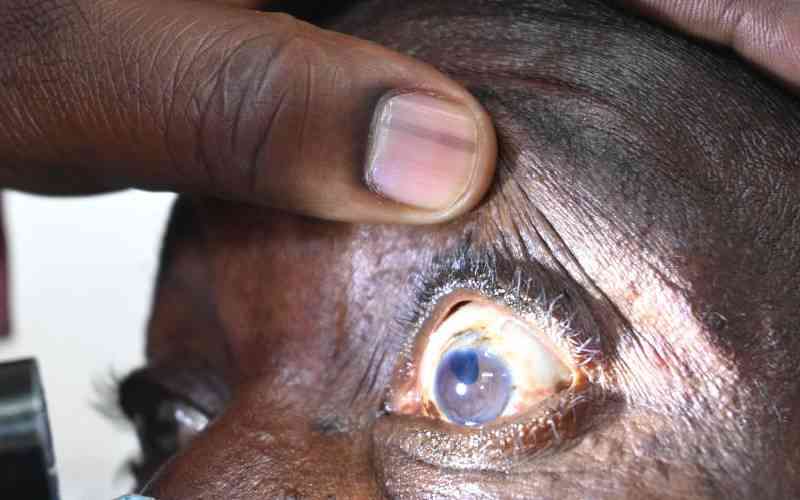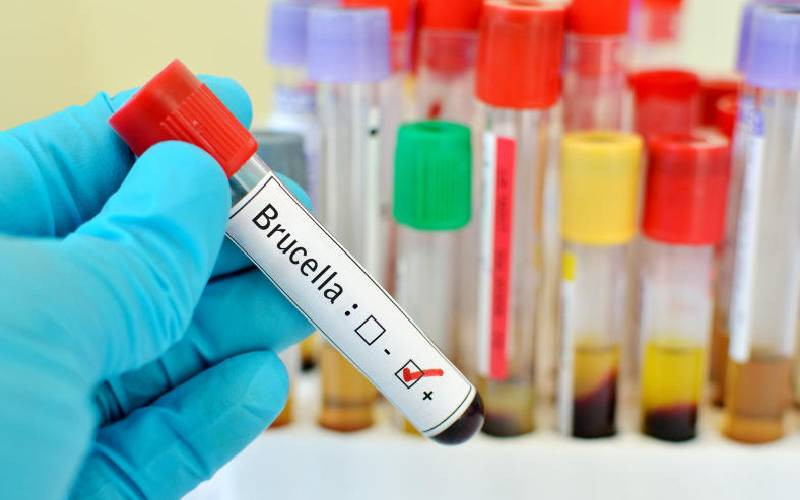
The government has urged Kenyans to take precautionary measures, including regular washing of hands, to curb the spread of Red Eye disease that was first reported in the Coast region.
Dr Michael Gichangi, the head of the Eye Health Section at the Ministry of Health, called on Kenyans to keep their hands off their eyes as the disease is spread through touching the eyes of infected persons or contaminated surfaces.
This came as fear gripped Kenyans following the outbreak of the disease with cases having been reported in Lamu County and Malindi, in Mombasa County.
One case has been reported in Kisii and three in Nairobi counties even as neighbouring Tanzania also reported the outbreak of Red Eye disease.
The Health Ministry has since issued an advisory, explaining to Kenyans the measures they should take to contain the disease.
"The disease presents red watery eyes," Dr Gichangi said adding they have instructed health workers to follow established guidelines in the management of patients taken to hospitals because of the disease.
"Persons with severe symptoms namely redness, discharge, swelling and bleeding should seek medical attention urgently," Dr Gichangi said yesterday.
The official said the condition is suspected to be caused by a virus, possibly adenovirus.
"There are other microorganisms, such as bacteria, that cause Red Eye disease, but this particular red eye outbreak in question is highly suspected to be viral one," said Gichangi.
He added: "An individual is likely to be infected by red eye if they come in contact with an infected person by touching their eyes, and later touches their eyes,"
Doctors make clinical diagnoses by studying the clinical features and other characteristics of the disease among individuals suspected to be suffering from the disease.
"Definitive diagnosis is made by appropriate laboratory tests such as PCR, on samples of the fluids, or by discharge," Dr Gichangi said, adding; "Individuals should wash their hands frequently and keep them off their faces."
"Hygiene is key in preventing red eye disease. Washing of hands kills infections that may spread to eyes, causing the disease."
Sharing of towels with family members infected with the disease is also discouraged.
In case individuals stay with an infected person, they are encouraged to disinfect high-touch surfaces.
Gichangi noted that to break the chain of transmission and cut the spread of the viral disease, one should take time off from work or school, for learners and teachers.
Individuals who present mild symptoms are required to apply a cold compress over the eyes with a wet face towel.
"However, self-medication is discouraged because it can be very tricky with viral infections, especially in the eyes. It is important to visit a hospital," Gichangi said.
Health records and studies reveal that the majority of Kenyans prefer self-medication purchasing drugs over the counter, and only seeking medical care, or visiting a hospital when in a critical state.
The disease is spread very fast, but rarely does it cause long-term complications to the eyes.
"Red Eye disease is usually self-limiting, and therefore needs not to cause any alarm," Gichangi said.
However, he said the disease is of public concern, and that the role of the public should be to reduce transmission, and spread.
"Of course if many people are infected, it will mean absence from work or school and overload to the health system."
 The Standard Group Plc is a multi-media organization with investments in media
platforms spanning newspaper print
operations, television, radio broadcasting, digital and online services. The
Standard Group is recognized as a
leading multi-media house in Kenya with a key influence in matters of national
and international interest.
The Standard Group Plc is a multi-media organization with investments in media
platforms spanning newspaper print
operations, television, radio broadcasting, digital and online services. The
Standard Group is recognized as a
leading multi-media house in Kenya with a key influence in matters of national
and international interest.











